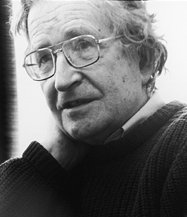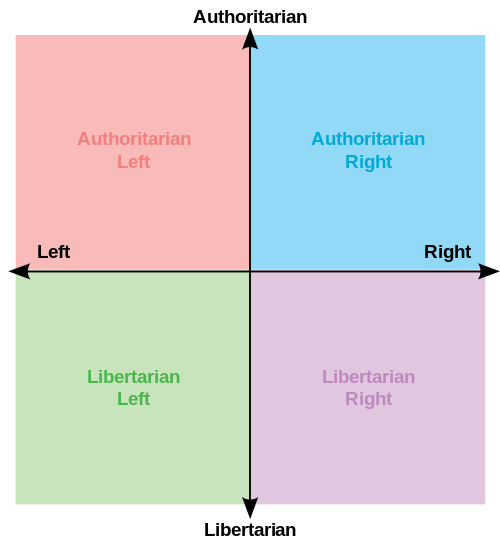 Of all the modern economic theories, the economic system of Marxism is founded on moral principles, while capitalism is concerned only with gain and profitability. Marxism is concerned with the distribution of wealth on an equal basis and the equitable utilization of the means of production. It is also concerned with the fate of the working classes–that is, the majority–as well as with the fate of those who are underprivileged and in need, and Marxism cares about the victims of minority-imposed exploitation. For those reasons the system appeals to me, and it seems fair. I just recently read an article in a paper where His Holiness the Pope also pointed out some positive aspects of Marxism.
Of all the modern economic theories, the economic system of Marxism is founded on moral principles, while capitalism is concerned only with gain and profitability. Marxism is concerned with the distribution of wealth on an equal basis and the equitable utilization of the means of production. It is also concerned with the fate of the working classes–that is, the majority–as well as with the fate of those who are underprivileged and in need, and Marxism cares about the victims of minority-imposed exploitation. For those reasons the system appeals to me, and it seems fair. I just recently read an article in a paper where His Holiness the Pope also pointed out some positive aspects of Marxism.
As for the failure of the Marxist regimes, first of all I do not consider the former USSR, or China, or even Vietnam, to have been true Marxist regimes, for they were far more concerned with their narrow national interests than with the Workers’ International; this is why there were conflicts, for example, between China and the USSR, or between China and Vietnam. If those three regimes had truly been based upon Marxist principles, those conflicts would never have occurred.
I think the major flaw of the Marxist regimes is that they have placed too much emphasis on the need to destroy the ruling class, on class struggle, and this causes them to encourage hatred and to neglect compassion. Although their initial aim might have been to serve the cause of the majority, when they try to implement it all their energy is deflected into destructive activities. Once the revolution is over and the ruling class is destroyed, there is not much left to offer the people; at this point the entire country is impoverished and unfortunately it is almost as if the initial aim were to become poor. I think that this is due to the lack of human solidarity and compassion. The principal disadvantage of such a regime is the insistence placed on hatred to the detriment of compassion.The last paragraph that the Dalai Lama said was that he felt that the collapse of the Soviet Union was a failure of totalitarianism and not Marxism.
The failure of the regime in the former Soviet Union was, for me, not the failure of Marxism but the failure of totalitarianism. For this reason I still think of myself as half-Marxist, half-Buddhist.
 Most Buddhists would at least agree that the “initiation of force” is a vice not a virtue. Therefore, they are not totalitarians (or statists), they are the opposite, they are libertarians. Libertarianism is a social, political, and economic system build on the non-initiation of force (non-violence).
Most Buddhists would at least agree that the “initiation of force” is a vice not a virtue. Therefore, they are not totalitarians (or statists), they are the opposite, they are libertarians. Libertarianism is a social, political, and economic system build on the non-initiation of force (non-violence).So at least mainstream Buddhist thought acknowledges that state power and the initiation of force is a problem. The Dalai Lama also criticized “class warfare” in Marxism because it promotes hatred.
I think the hard part is discussing, analyzing, and debating the “socialism” in Buddhist thinking. When a lot of people think of socialism in America, they think of “state socialism” which is only one type of socialism underneath a broad ideological umbrella of “Socialism”. It gets harder when some Buddhists take a “libertarian socialist” view of society. The most popular advocate for libertarian socialism in academic circles seems to be Noam Chomsky (he's not a Buddhist).

Regardless if libertarian socialism (or left-libertarianism) is “right” or “wrong”, I think they are useful in a progressive sense, because they reject state power. Therefore, many Buddhists can be aligned within the libertarian side of the political spectrum on the Political Compass shown above, but they would be divided between libertarian socialism (left-libertarianism) and libertarian capitalism (right-libertarianism).
A Buddhist named David R. Loy said in an article in Sumbhala Sun,
…I’ve argued that today the Buddhist “three poisons” of greed, ill will and delusion have become institutionalized: our economic system (corporate consumer capitalism) institutionalizes greed, our militarism is institutionalized ill will, and our “infotainment” media institutionalize delusion. The three support and reinforce each other, which makes it very difficult to challenge any of them, especially since the people who control this interlocking system also happen to be the ones who benefit the most from it.His article was criticizing Obama for continuing the war in Afghanistan, bailing out banks and corporations, and not preserving civil liberties. He seems to reject capitalism in general. The interesting thing is right-libertarians agree with most of his conclusions about Obama and George W. Bush, but for different reasons. David R. Loy rejects capitalism and right-libertarians reject only state-capitalism specifically, not capitalism in general. David R. Loy believes that capitalism is the root of all evil because it promotes war, destroys civil liberties, and widens the gap between the rich and the poor. Right-libertarians believe that The State promotes war, destroys civil liberties, and widens the gap between the rich and the poor (by picking winners and losers in the economy).
People equate socialism with altruism and compassion, and capitalism with egoism and greed. The best way for Buddhists from the “left” and the “right” to reconcile their differences is by reading and discussing the book, A Conflict of Visions: Ideological Origins of Political Struggles, by Thomas Sowell.
The website The Global Politician discusses Thomas Sowell’s book very well:
In observing arguments for and against a wide variety of positions, Dr. Sowell reports that he noticed that in many cases participants seemed to be arguing not so much against each other, but past each other. In other words, each person was arguing not against the others’ position but what they perceived those positions to be, which was often far different from the actual positions held.
His thesis is that prior to paradigms, world-views, theories or any rationally articulated models there is an underlying vision, defined (quoting Joseph Schumpeter)as a “pre-analytic cognitive act.
It is what we sense or feel before we have constructed any systematic reasoning that could be called a theory, much less deduced any specific consequences as hypotheses to be tested against evidence. A vision is our sense of how the world works.
Visions are a sense of the possibilities of human reason and power to act purposefully to achieve desired ends and are broadly defined as Constrained and Unconstrained. An unconstrained vision sees articulated reason as powerful and potent to shape human society, a constrained vision sees human beings as more limited by human nature and natural law.
Dr. Sowell concedes that visions are rarely pure but range from strongly to weakly constrained or unconstrained. People may hold one sort of vision in a certain sphere of opinion and another in a different sphere, there are hybrid visions (Marx and John Stuart Mill are given examples) and people sometimes change predominant visions over their lifetimes.
It is important to note that he does not equate constrained and unconstrained visions with the Left/ Right model of the political spectrum, nor do they strongly reflect the Libertarian/ Authoritarian dichotomy. An unconstrained vision characterizes the Utopian Socialists of the early nineteenth century (such as Fourier) but is also strongly expressed by William Godwin, considered by many to be the founder of modern Anarchism, in his Enquiry Concerning Political Justice.
The unconstrained vision is more often characteristic of those who would use the coercive power of the state to affect great changes in the structure of society and human nature, but it cannot be assumed that a constrained vision leads to a blind defense of the status quo. He gives the example of Adam Smith, an exemplar of a strongly constrained vision, was an advocate of sweeping social changes such as the abolition of slavery and an end to mercantilist policies.
Once grasped, Dr. Sowell’s theory makes sense of some seeming inconsistencies and contradictions in both Left and Right positions.
For example, though there is a tendency for the constrained vision to predominate among the politically Conservative and free market advocates, it is not absolute or consistent. A Conservative may argue for the superior efficacy of market processes to serve the social good (as opposed to purposeful direction of the economy) but fail to see the market for illegal drugs as subject to the same laws of supply and demand as other commodities or consider the argument that the process costs of drug prohibition may be higher than the social costs of drug addiction. In fact, the phrase “consider the argument” is misleading. It is possible that the argument simply does not exist in his perceptual universe and is interpreted as advocacy for drug use.
On the other end of the political spectrum, a thinker such as Paul Ehrlich (in The Population Bomb) may argue from the highly constrained view of Thomas Malthus on population and food resources, combined with an unconstrained view of the ability of the state to effectively control population and allocation of resources for the general good of mankind.
And we see on both the Left and Right, visionaries holding strong beliefs about the ability of humans to deliberately shape culture to reflect whichever set of values held by their respective advocates. Though much experience in the twentieth century has shown how limited the ability of men is to design culture as if it were an engineering project, and how disastrous the attempts often are, men and women of unconstrained vision persist in their advocacy of policies intended to rid society of gender defined roles on the one hand or of behavior considered “vice” on the other.
So the question arises, if the concept of the contrasting visions is hedged about with so many qualifications, is it at all useful in categorizing belief systems or explaining behavior?
In conclusion, Buddhists need to discuss, analyze, and debate a vision for humanity prior to discussing politics. This has to be done at the “pre-analytic cognitive” level. Once that is done, then Buddhists can move to economics which deals with human interaction and exchange in its most general sense. After that, “rights” need to be established to put limits and boundaries on human interaction (i.e. the non-initiation of force). Then finally a system, not necessarily a government, but an organized system that enforces and protects those rights has to be established. This is where “mindfulness” and “consciousness” occurs when Buddhists discuss politics, economics, and society.I believe it is highly useful. In Western civilization there exists no serious argument about the desirability of that condition expressed by the words “freedom” and “equality”. Yet in the West we find that whenever advocates of various causes argue for their sides, their definitions do not coincide, i.e. they argue past each other.
I will attempt to discuss and analyze a vision in later blogs.
Don't know if the owner of this blog is still around, but i'd like to say that this was very insightful, and thanks for posting it.
ReplyDelete